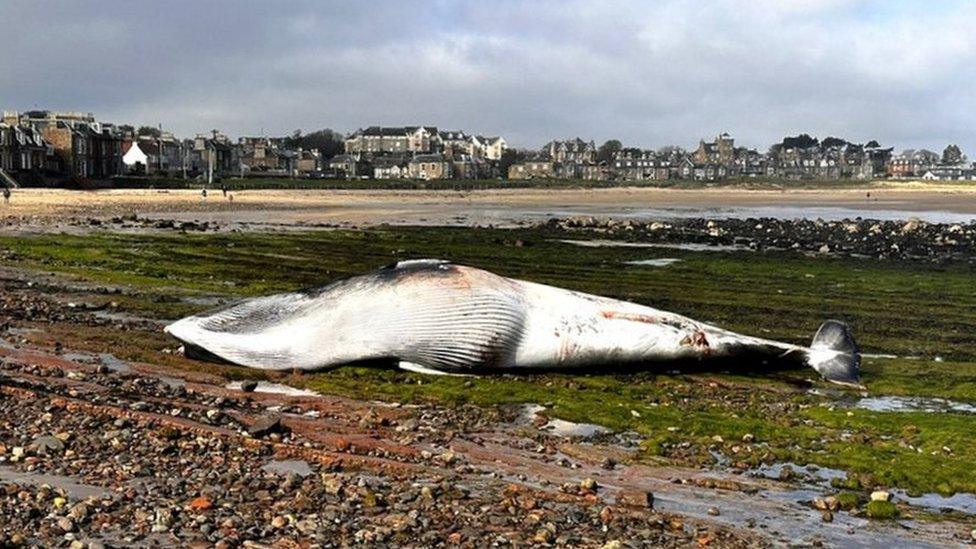Experts probe one of UK's worst whale strandings
- Published
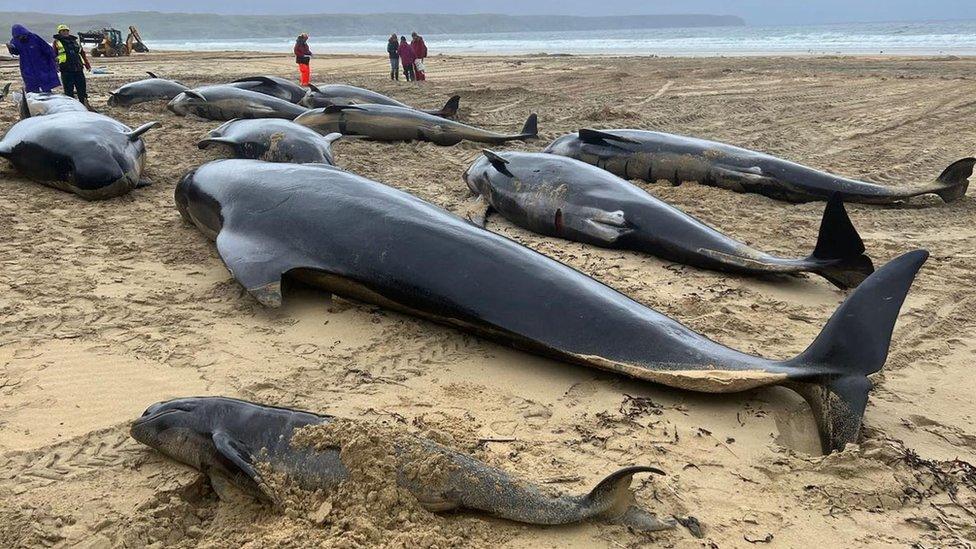
The whales stranded on Lewis will be moved to a landfill in Stornoway for post-mortem examinations
Scientists are carrying out a "monumental" post-mortem investigation on a pod of 55 whales that became stranded in the Western Isles.
Only 15 were alive after they washed on to Traigh Mhor beach at North Tolsta on the Isle of Lewis on Sunday morning.
One is believed to have been successfully refloated, but the rest were euthanised on welfare grounds.
It is the highest number of deaths following a mass stranding of animals in the UK for at least 70 years.
Leading veterinary pathologist Dr Andrew Brownlow said the investigation would be a "monumental task".
He is director of the Scottish Marine Animal Stranding Scheme (SMASS), whose team will carry out the post-mortem examinations.
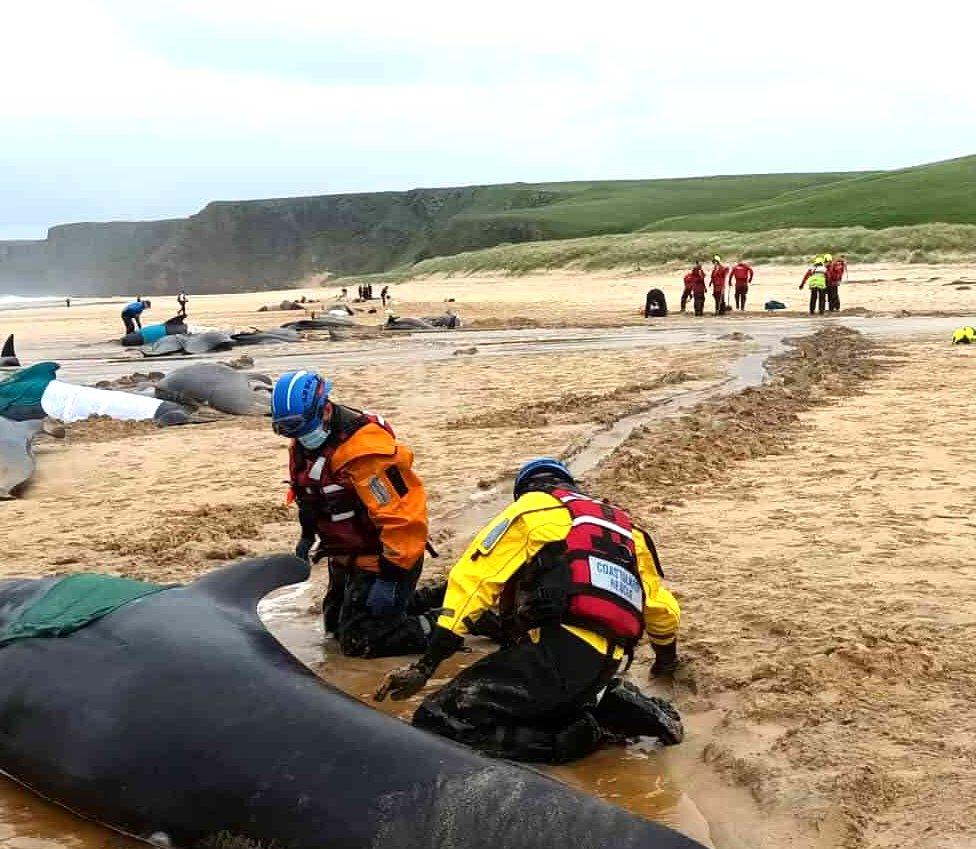
Attempts were made to give surviving whales first aid on Sunday
They will gather data from a select number of the whales as they would be unable to examine all 55.
Weather could also impede the process though Dr Brownlow said conditions had improved since Sunday.
He told BBC Radio's Good Morning Scotland programme: "It's going to be a monumental task.
"There are more animals sadly which are awaiting necropsy now than all of the mass strandings put together for the last decade.
"What we will try and do is triage these animals - we will select those animals that we think best represent the rest of the pod and make sure that we take samples and as much data that we can.
"Then it's simply a race against time, energy and weather. We will do the most that we possibly can to find out what's been going on here."
Pilot whales are known for their strong social bonds, so often when one whale gets into difficulty and strands, the rest follow.
Between 60-70 of the animals, external came into shallow waters in Sutherland in 2011 while 21 died during a stranding at Pittenweem in 2012.
According to the Natural History Museum, external, the largest UK stranding took place in 1927 when 126 out of more than 130 false killer whales died in the Dornoch Firth in the Highlands.
There are also accounts of a mass stranding of pilot whales at Dunbar, East Lothian, in May 1950 with some reports saying 147 were found on the beach.
Marine charity British Divers Marine Life Rescue (BDMLR) said the pod on Lewis could have followed a female on to the beach when she became unwell while giving birth - as happened at Staffin on Skye in 2015.
However Dr Brownlow said there are a number of reasons behind strandings and his team will be looking to rule out human impact.
He said: "Pilot whale strandings have happened for centuries - it's not necessarily the case that it's because of human impact.
"But that's one of the things we want to try and investigate and rule out - to see whether or not some of the things that can affect these animals such as underwater noise, interaction with fishing gear, accumulation of toxins or disease may have played a part."
About 55 whales were stranded on Sunday morning
On Sunday attempts were made to give the surviving whales first aid.
BDMLR attempted to refloat two of the more active whales - one successfully got away but another was later found further down the beach.
The whales are now being moved to a landfill in Stornoway where they will be buried after investigations take place.
Dr Brownlow said whales can be left to decompose on beaches as they form part of the natural nutrient cycle - but it the decision to move them was "understandable" as Traigh Mhor is one of the more popular beaches on the island.
Western Isles Council - Comhairle nan Eilean Siar - has asked people to avoid the area as the operation to remove the whales takes place.
'Global interest'
Last year more than 200 of the same species of whales were found stranded on a remote beach on the west coast of Tasmania, Australia.
Dr Brownlow said although 55 whales was a large stranding for Scotland, it was "not unprecedented" - but had nevertheless attracted interest from scientists around the world.
"Although this is pretty grim and a relatively challenging thing to do, you can actually learn a lot from these animals," he said.
"There is interest from all over the world - we've been contacted from the guys in Tasmania who have offered us support and best wishes but are also very interested to know what we find out.
"From the process of examining these animals we can learn a lot about the threats and pressures that affect not just the animals in our waters but globally. So I think there is some value in doing this."
Related topics
- Published16 July 2023
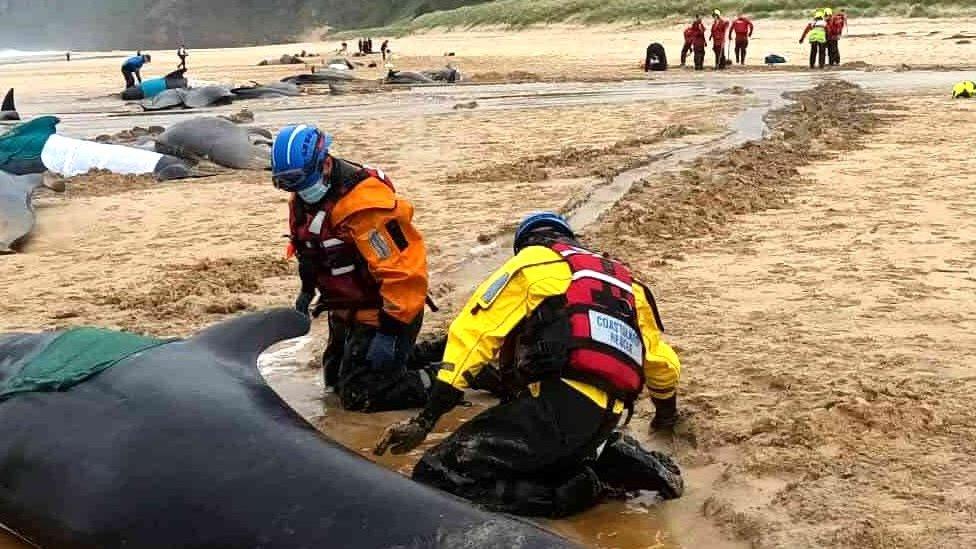
- Published23 June 2023
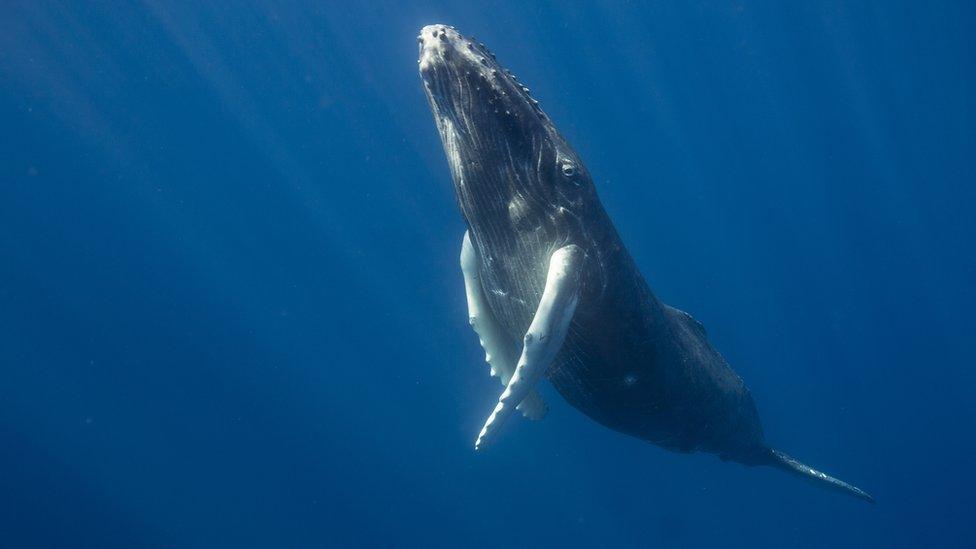
- Published17 July 2023
